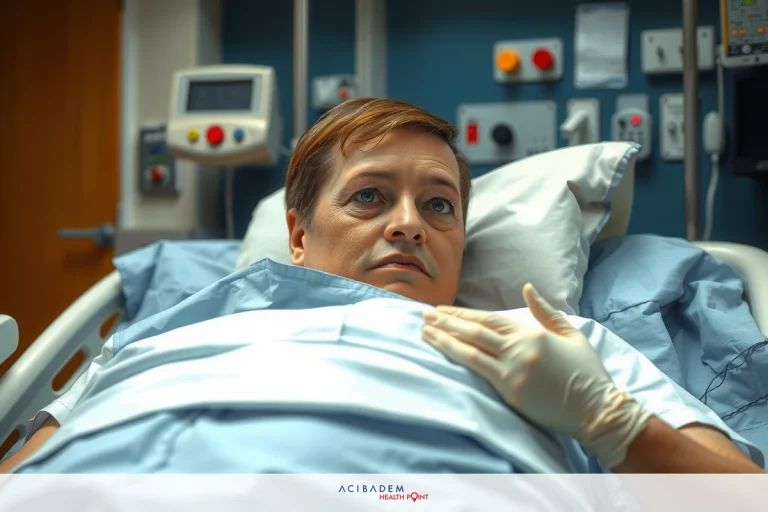How Common is a Fistula After Bariatric Surgery?
How Common is a Fistula After Bariatric Surgery? Bariatric surgery is a common procedure designed to aid in weight loss and improve overall health. While this surgery has proven beneficial for many individuals, it is not without its potential complications. One such complication that might arise is the development of a fistula. A fistula is an abnormal connection between two body parts, such as organs or blood vessels.
In the context of bariatric surgery, fistulas can occur when there is an unexpected connection between the stomach and other parts of the digestive system. This condition, while rare, can lead to serious health issues and require further medical attention. The following text will provide useful insight into the prevalence and risk factors associated with fistulas following bariatric surgery.
Understanding Fistulas
A fistula is a medical condition characterized by an irregular connection or passageway that forms between two organs or vessels that do not usually connect. This unnatural link can occur in various parts of the body and may result from injury, surgery, or infection. In the context of bariatric surgery, fistulas typically form in the gastrointestinal tract. They can create a pathway between the stomach and other parts of the digestive system, such as the intestines.
Fistulas following bariatric surgery are often a postoperative complication. The formation of these abnormal connections can lead to severe health complications if they go unnoticed or untreated. For instance, a gastric fistula can allow stomach acid to leak into other areas of the body, leading to inflammation, infection, and further medical problems. It’s essential to understand that while fistulas are a potential risk following bariatric surgery, they are relatively uncommon and there are many preventative measures in place during surgical procedures.
The occurrence of a fistula after bariatric surgery is generally identified through symptoms experienced by the patient. These symptoms can include abdominal pain, fever, and sometimes leakage from the surgical wound. Diagnosis usually involves imaging studies such as CT scans or endoscopic examinations which allow doctors to visualize the abnormal connection. Once diagnosed, treatment options for fistulas can vary depending on their size and location. They range from non-surgical treatments like nutritional support and antibiotics to control infection, to more invasive approaches such as corrective surgery.
While the prospect of developing a fistula post-bariatric surgery might seem alarming, it’s important to remember that this is a rare complication. Surgeons are highly trained in techniques that minimize the risk of such occurrences. Moreover, understanding what fistulas are and how they form gives patients better awareness of potential signs and symptoms, allowing for early detection and treatment if they do occur.
Prevalence of Fistulas
The prevalence of fistulas after bariatric surgery helps provide perspective on the risk involved in these procedures. While fistulas are a recognized postoperative complication, their actual occurrence rate is relatively low. The exact statistics can vary depending on the specific type of bariatric surgery performed. For example, procedures such as gastric bypass may have slightly higher fistula rates compared to other methods due to the complexity of the surgery.
Several studies have been conducted over the years to determine the likelihood of developing a fistula after bariatric surgery. The results typically indicate a frequency range from less than 1% to around 4%. This low percentage suggests that while fistulas are a serious complication, they are not a common outcome for most patients undergoing bariatric surgery. These figures also reflect the advances in surgical techniques and
patient care that have contributed to minimizing postoperative complications.
It’s essential to note that while the overall prevalence is low, individual risk can be influenced by various factors. These can include the patient’s general health, the presence of underlying conditions, the type of bariatric procedure, and even the expertise and experience of the surgeon. Understanding these factors can help potential patients make informed decisions about their treatment options and set realistic expectations about their recovery process. Despite the possibility of complications like fistulas, bariatric surgery remains a highly effective treatment option for obesity and its related health issues.
Factors Affecting Fistula Risk
While the overall risk of developing a fistula after bariatric surgery is low, it’s important to acknowledge that certain factors can influence this risk. Understanding these factors can provide potential patients with a more comprehensive picture of their individual risk profile, enabling them to make informed decisions about their health.
One of the primary factors affecting fistula risk is the type of bariatric surgery performed. Some procedures, due to their complexity and the extent of manipulation involved, may carry a higher risk. For instance, gastric bypass surgery, which involves creating a small pouch in the stomach and rerouting the digestive tract, tends to have a slightly higher fistula risk compared to other less invasive procedures.

Patient-related factors also play a significant role in determining fistula risk. These include the patient’s overall health status and the presence of comorbid conditions such as diabetes or heart disease. Obesity itself can increase the risk of complications, including fistulas. Additionally, habits like smoking can negatively impact healing and recovery, thereby increasing the likelihood of complications.
Lastly, the surgeon’s skill and experience are crucial in minimizing postoperative complications like fistulas. Surgery performed by a highly experienced and well-trained bariatric surgeon can significantly reduce the risks associated with the operation. This emphasizes the importance of selecting a qualified bariatric surgeon when considering weight loss surgery. Despite these varied factors influencing fistula risk, it remains essential to remember that the overall occurrence rate of this complication is relatively low. Through careful patient evaluation and surgical planning, many of these risks can be effectively managed and minimized.
Frequently Asked Questions
What are the symptoms of a fistula after bariatric surgery?
Common symptoms of a fistula after bariatric surgery include abdominal pain, fever, persistent wound leakage, and signs of infection such as redness or swelling. If you experience any of these symptoms, it is important to consult with your healthcare provider for proper evaluation and diagnosis.
Are fistulas after bariatric surgery common?
While fistulas can occur as a postoperative complication of bariatric surgery, they are relatively uncommon. The prevalence of fistulas ranges from less than 1% to around 4%, depending on the specific type of surgery performed. It's important to note that advancements in surgical techniques and patient care have contributed to minimizing the occurrence of complications like fistulas.
Can fistulas be prevented after bariatric surgery?
Surgeons take various preventive measures during bariatric surgery to minimize the risk of developing a fistula. These measures include meticulous surgical technique, careful tissue handling, and appropriate closure of incisions. Additionally, following postoperative instructions provided by your surgeon and maintaining a healthy lifestyle can help reduce the risk of complications.
How are fistulas diagnosed after bariatric surgery?
Diagnosis of a fistula typically involves a combination of clinical evaluation and imaging studies. Your healthcare provider may conduct physical examinations, review your symptoms, and order tests such as CT scans or endoscopic examinations to visualize the abnormal connection and determine its location and extent.
What are the treatment options for a fistula after bariatric surgery?
Treatment options for a fistula depend on its size, location, and severity. Non-surgical approaches may include nutritional support, antibiotic therapy to control infection, and close monitoring to allow spontaneous closure. In more severe cases, corrective surgery may be required to repair the fistula and restore normal digestive function. The specific treatment plan will be determined by your healthcare provider based on your individual circumstances.











